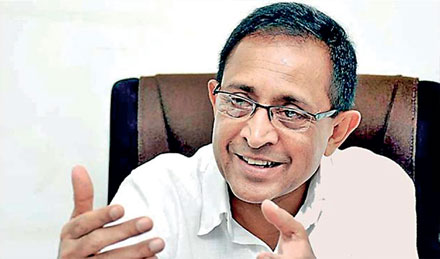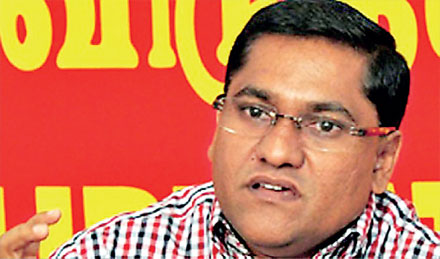Friday Feb 20, 2026
Friday Feb 20, 2026
Tuesday, 30 August 2022 03:30 - - {{hitsCtrl.values.hits}}

S.M. Marikkar

Kabir Hashim

Patali Champika Ranawaka

Vijitha Herath
The Samagi Jana Balawegaya (SJB) yesterday proposed a dole or a Government allowance be provided to the lower income classes affected by the recent electricity tariff hike.
Proposing the measure, SJB Colombo District MP S.M. Marikkar said: “The underprivileged and lower income classes cannot bear the hike along with the water tariff hike as their income will not increase. We, therefore, propose a dole be given out.”
According to Marikkar, when hiking tariffs, the Government must make a note of the manner in which the people are living today.
He made these comments at the adjournment debate held in Parliament yesterday on the recent electricity tariff hike. The Public Utilities Commission of Sri Lanka approved the Ceylon Electricity Board’s request to increase monthly electricity charges by an average of 75%, effective 10 August.
Listing out all the issues faced by the people due to the economic crisis, Marikkar said it was in such a scenario that the Government is seeking to increase the tariffs. He also blamed former Prime Minister Mahinda Rajapaksa for the crisis faced by Sri Lanka today. “He is the creator of this issue,” he said.
“The Government is blaming the hike on high production costs. One of the main reasons behind the excessive electricity production costs is corruption and overstaffing. Who provided employment in excess? It happened during the Mahinda Rajapaksa regime. Corruption of officials such as when purchasing power from private firms is also a reason,” the SJB MP added.
Reiterating Marikkar’s comments, SJB MP Kabir Hashim called on the Government to provide direct cash transfers to low-income households and SMEs affected by the recent hike in electricity tariffs. Hashim said the hike has unfairly impacted consumers that consumed the lowest number of units of electricity per month.
Hashim said there are at least two million who use under 30 units while another two million use between 30-60 units. “There’s a 125% for those who use 60 to 90, a majority of whom are salaried workers in the public and private sectors. Then there are SMEs who are affected,” he said.
The MP said therefore the SJB suggests a direct cash transfer is made to these groups. “This has been recommended by the IMF as well,” he claimed.
Hashim pointed out that the households were not the cause of the crisis, blaming the country’s policymakers and groups within the Ceylon Electricity Board (CEB) with vested interests instead. He slammed the CEB for being corrupt and said the people must not bear the burden of the acts by these groups.
SJB MP Patali Champika Ranawaka claimed that the reduced power cuts are not the result of good Government management but rather the reduced demand for power. “The demand has dropped by 20%. The economy has also collapsed as a result. There is a clear correlation between the supply of electricity and the development of the economy,” the MP pointed out.
According to him, this is in no way good news as the economy seeking to revive will also lead to an increased demand for electricity and might lead to a crisis situation once more.
Ranawaka said a scientific tariff revision should ideally take place every six months.
“I proposed this while in the Cabinet but it was not put into action. This is why the CEB is now facing massive debts,” he said. But Ranawaka pointed out that the principles of social justice must be followed.
“There are 3.1 million users who take up less than 60 units a month. They are not a burden to the CEB as they only use 6% of the power generated. Their needs can be covered with cheaper hydropower. Therefore, imposing such a hike on them is a severe injustice,” he said.
National People’s Power MP Vijitha Herath said the people are being burdened by the results of mismanagement by politicians and officials lasting for years. He said the Ceylon Electricity Board did not suffer losses due to overstaffing as being claimed.
“If there is overstaffing that is also the fault of politicians since 1969 who hired staff. If there is an electricity mafia today, politicians should also be blamed for that as they made the policy decision to make private power purchases.
“No one has worked according to the National generation plan and they have instead gone for emergency power purchasing continuously allowing for a private sector monopoly in the industry. The people have been made the scapegoats now but those responsible are going squat free,” he added.
